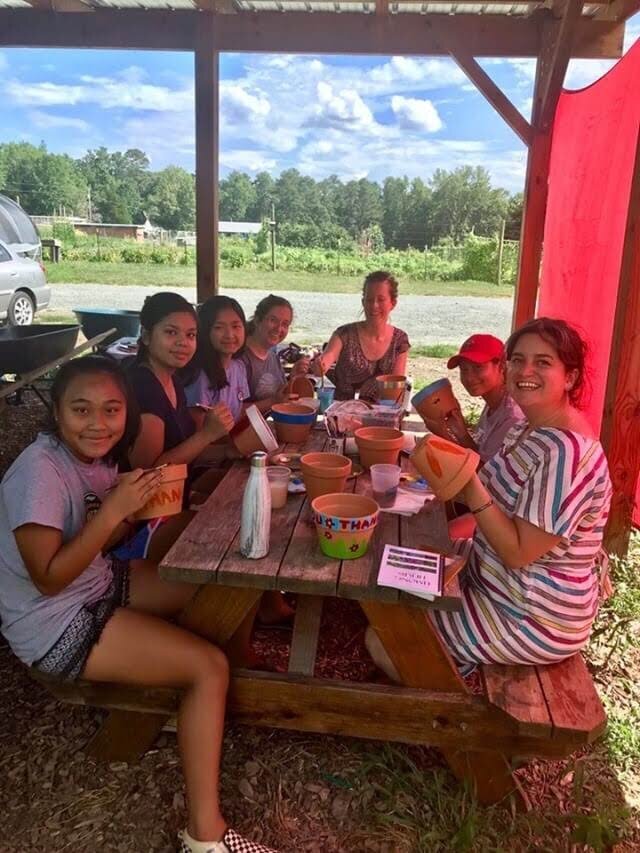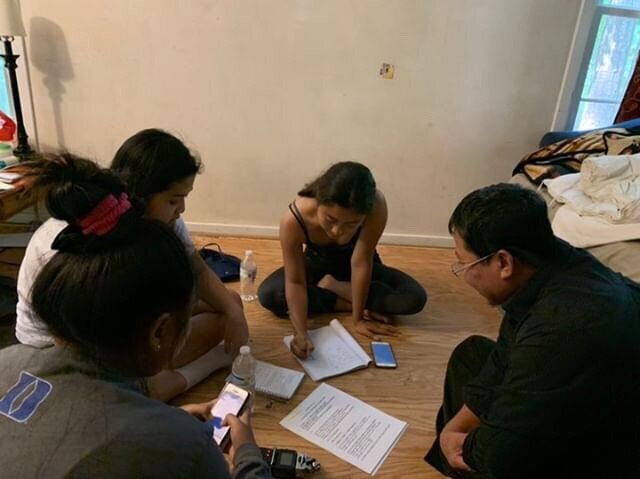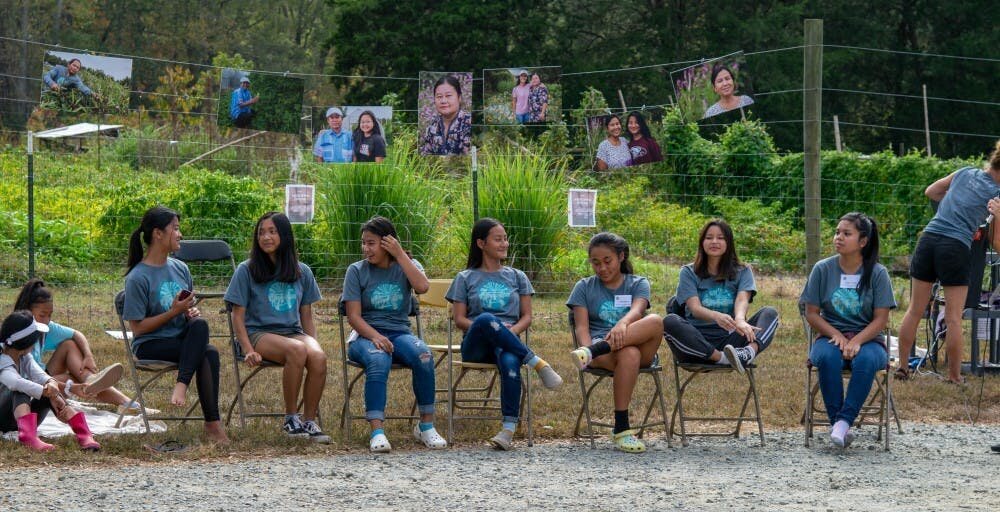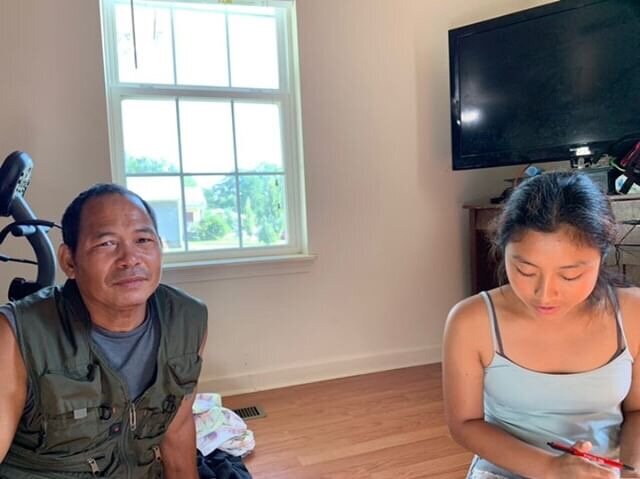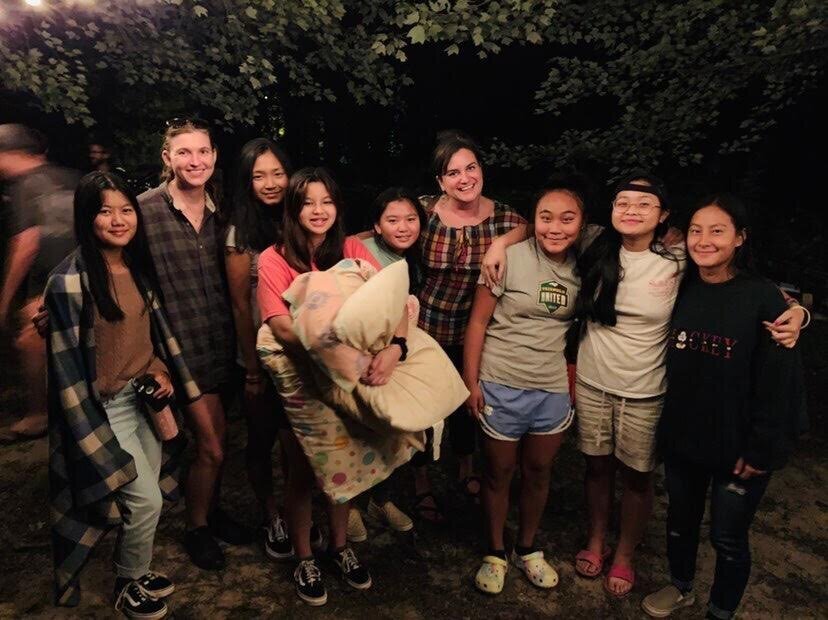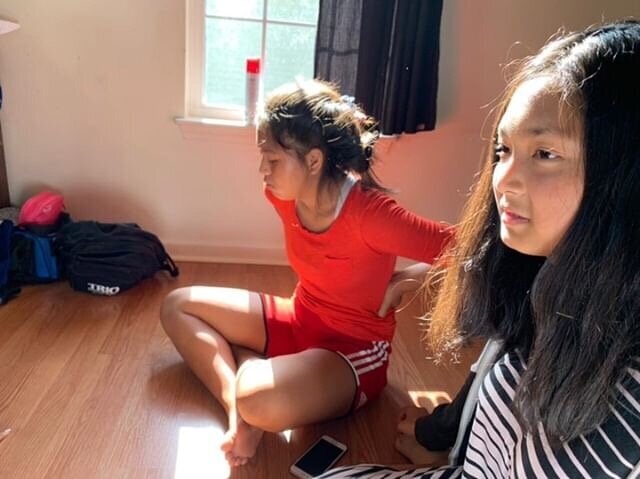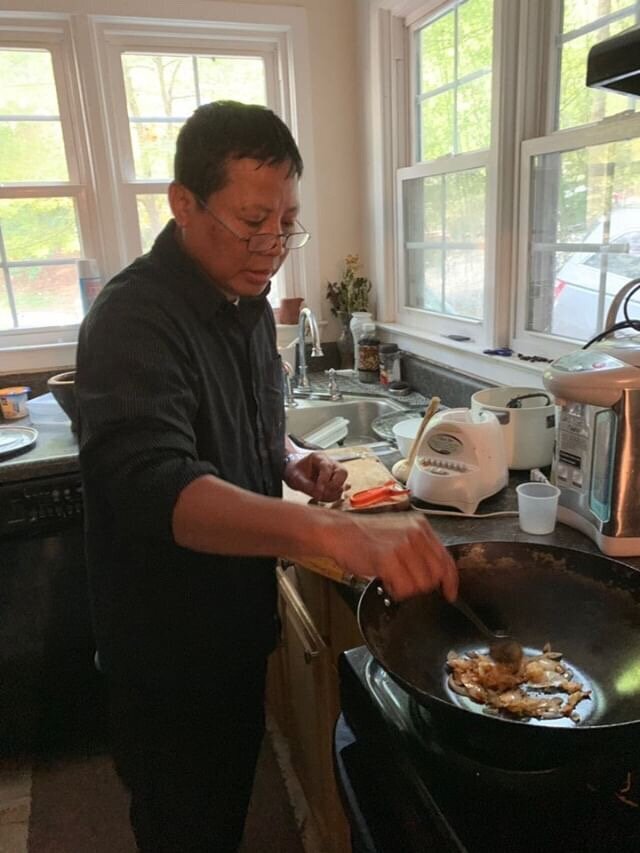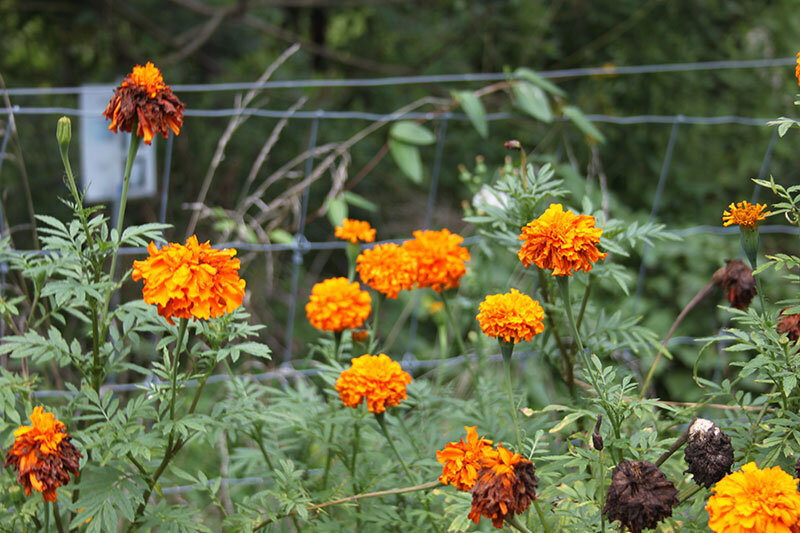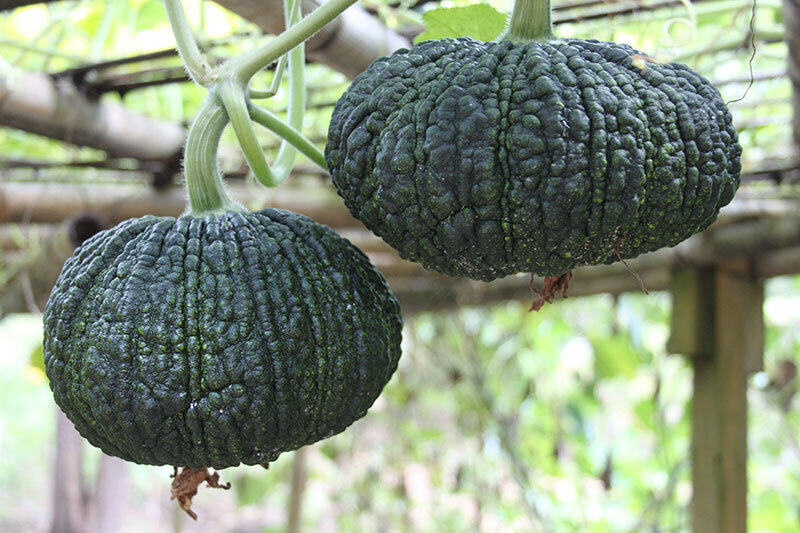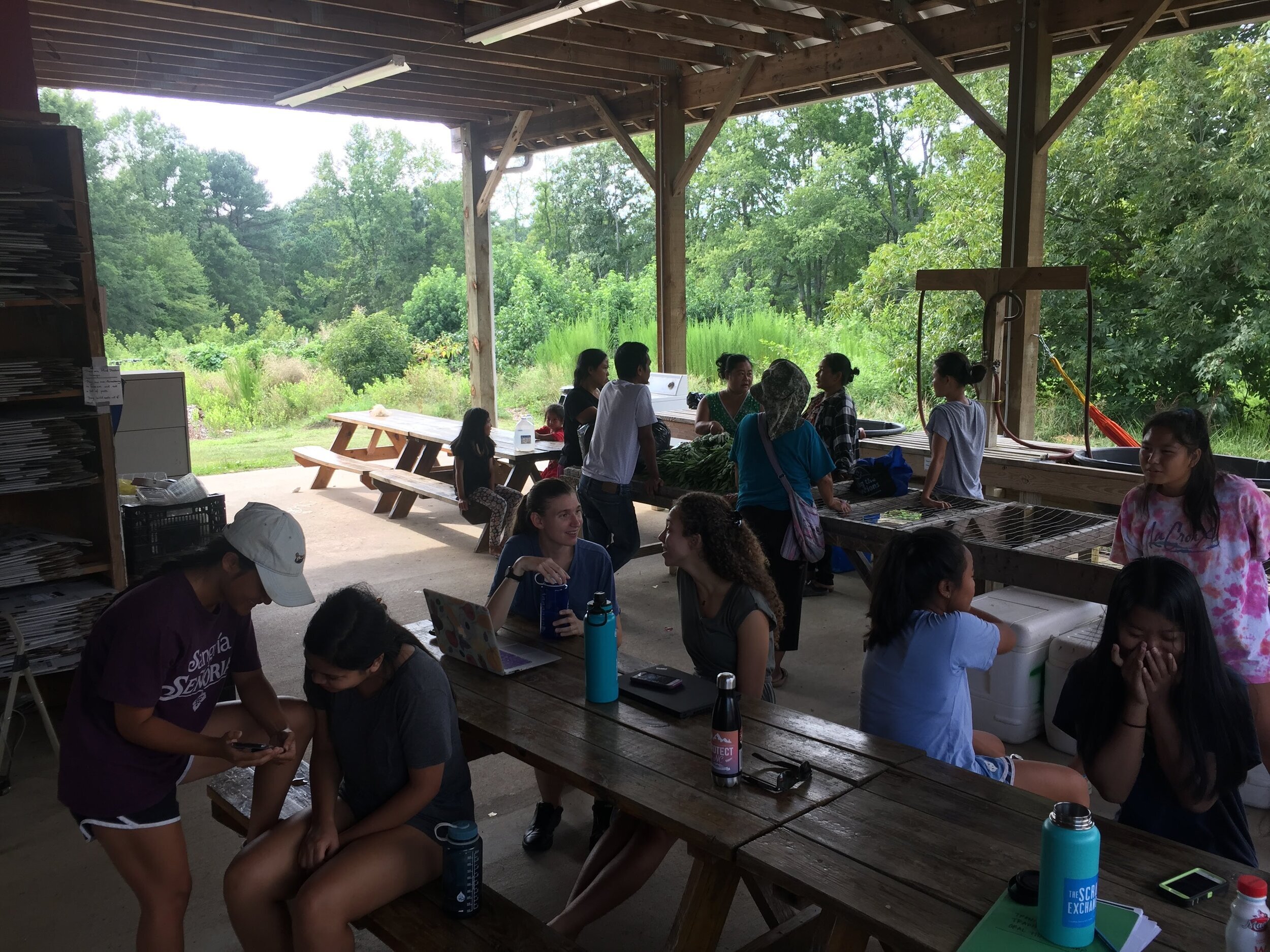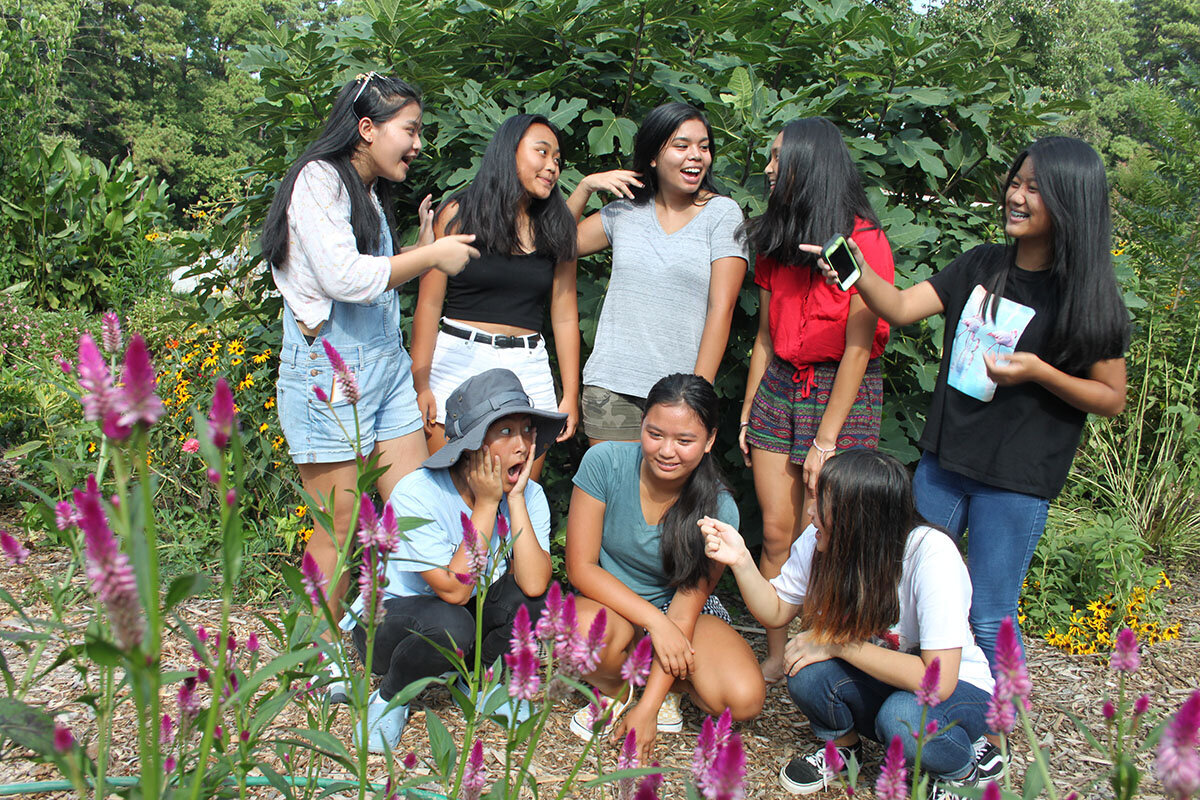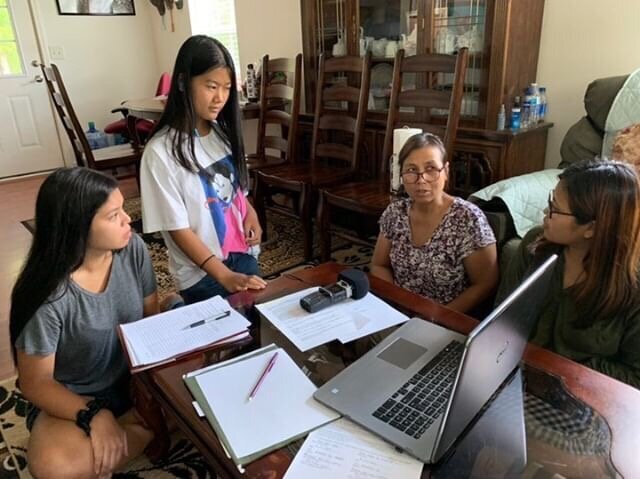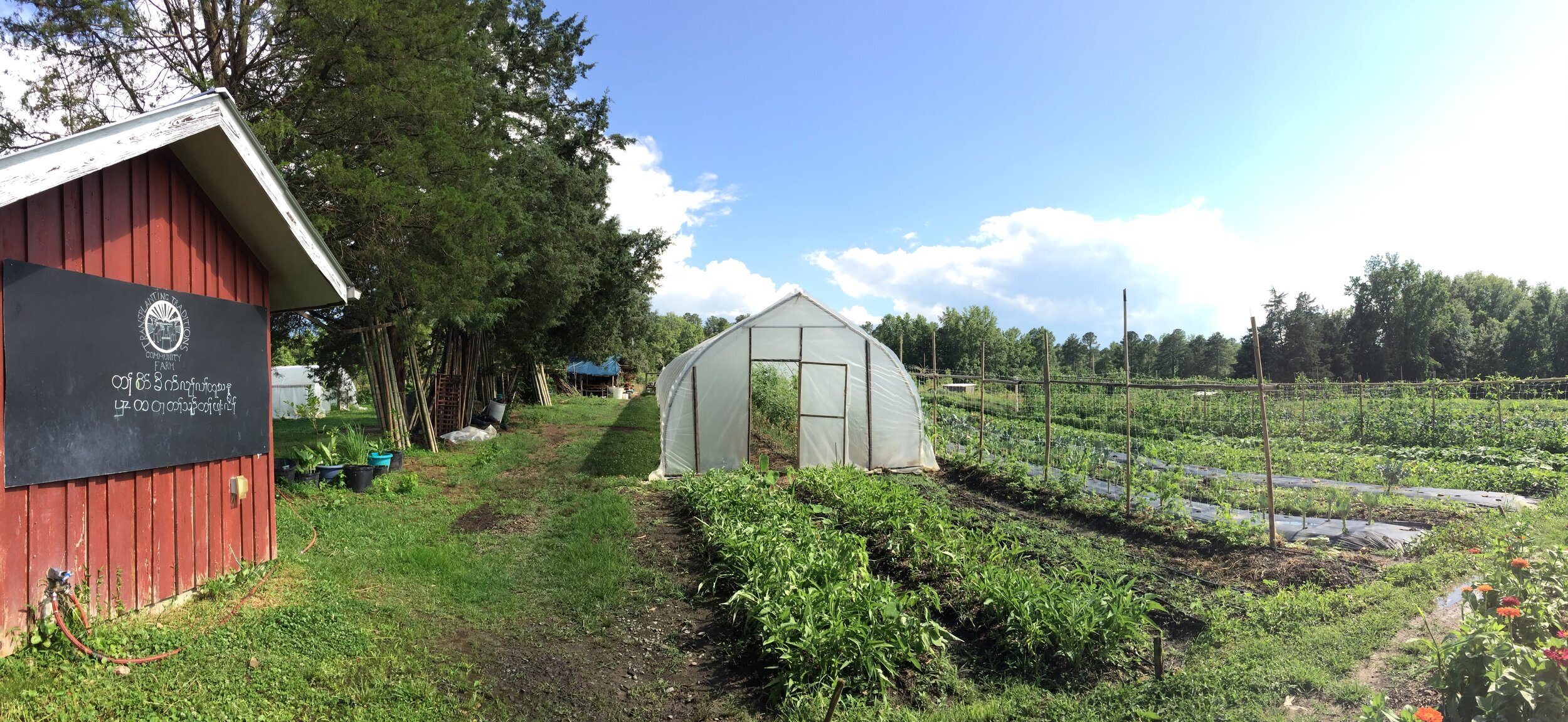Audio Bites for Transplanting Traditions
During June, July, and August 2019, I designed and led an oral history and storytelling boot camp for the youth program at Transplanting Traditions Community Farm in Chapel Hill, NC. Transplanting Traditions works with refugees from Burma to foster a healthier community and maintain agricultural traditions as they build new lives in North Carolina. Since 2013, the farm has offered a summer youth program for roughly ten refugee teens aged 13–19, with an emphasis on peer-to-peer learning, food justice, and cultural identity.
Inspired by Durham’s beloved Audio Under the Stars public listening event, Transplanting Traditions wanted to introduce this summer’s teens to oral history and audio recording, building on an established partnership with the Southern Oral History Program and linguists at UNC Chapel Hill. Over the course of eight weeks, I introduced oral history as a concept and tool, trained the young women in interview strategies, and showed them how storytelling can be support community advocacy. Through practicing interviewing each other, connecting with an amazing group of guest speakers, and lots of candid sharing and laughs, we created a space together for honest reflection on the joys and challenges of being Karen-American teenagers.
Youth Program Participants
Talar H (Production Assistant), 18
Sofia T, 18
Hikrihay H, 18 (Teen Leader)
Ler Ba N, 15
Lwel M, 13 ½
Shun L, 15
Hteeno H, 13
Thalerpyew H, 13
Read their bios in the event program
Audio Bites: Short Stories on Culture & Foodways from Burma
The summer’s culminating project was four oral history interviews (completed by pairs, with support from Talar Hso, youth program lead). The audio and transcripts will be archived in the Southern Oral History Program as part of its Southern Mix initiative. I edited these interviews into bite-sized pieces together with audio collected by Talar and recorded in class. Transplanting Traditions presented the pieces on Oct 12, 2019, in a listening party and fundraiser titled “Audio Bites: Short Stories on Culture & Foodways From Burma.” The event raised more than anticipated, and I think the teens had fun too. Sofie Thein, 18, shared with me: “I loved working with you on this project. You’re super funny and seeing your work has really opened by eyes!”
Read about the event: “Refugees farming for change in Chapel Hill,” Elon News Network (Oct 2019)
“My mom makes this curry, I always get mad and stuff and never eat it. I can’t take it, my mouth...She loved spicy food growing up, but I can’t. I don’t like spicy food. She likes extreme. I can eat Hot Cheetos, but nothing more.”
Krit Heh Htoo, interviewed by Ler & Lwel
Krit Heh Htoo was born in 1966 in Dawei, Burma. In 1998, the conflict of the Karen fight for independence hit his home. He was captured by the Burmese military, but managed to escape and find his way back to his family. The Karen National Union helped him, his wife, and their children get to a refugee camp in Thailand in 1999. Krit Heh Htoo came to the US with his family in 2006. Today, he works for UNC Facilities Services, farms at Transplanting Traditions, and he just bought some farmland of his own.
Eh Paw, interviewed by Talar & Hteeno
Eh Paw was born in 1982 and grew up in Burma. As the oldest of six children, she stopped going to school to help out at home when she was 8. Three of her siblings are still in Burma, while two also live in the US. When she was fourteen, the fighting between the Karen National Union and the Burmese military erupted in her home village. With the help of her aunt, she left home for the Tham Hin refugee camp in Thailand. She lived in the camp for almost fifteen years. She was married in 1998 and she had her first children in Tham Hin. She came to the US in 2006, and has worked for Sheraton Hotels & Resorts and Tyson Foods.
San San Lwin, interviewed by Shun Lei & Sofia
San San Lwin was born in 1973 in Pagu, Burma. She went to school through ninth grade, and then stayed home to help her family and younger siblings. She and her husband were granted asylum status, so she avoided time in the refugee camps. She came to the US when she was 32 and pregnant with her first daughter. She lived in New Bern first and then moved to Chapel Hill. She also has a daughter who is 11 years old.
Kerpaw Htee, interviewed by Hikhrihay & Talar
Kerpaw Htee was born in 1961 and grew up in Burma. He spent 8 years in a refugee camp in Thailand. In 1992 he began going to bible school in the camp and he was married in 1997. He came to the US in 2004. Kerpaw Htee began working for UNC Housekeeping soon after arriving in Chapel Hill, and he became a pastor six years ago.







